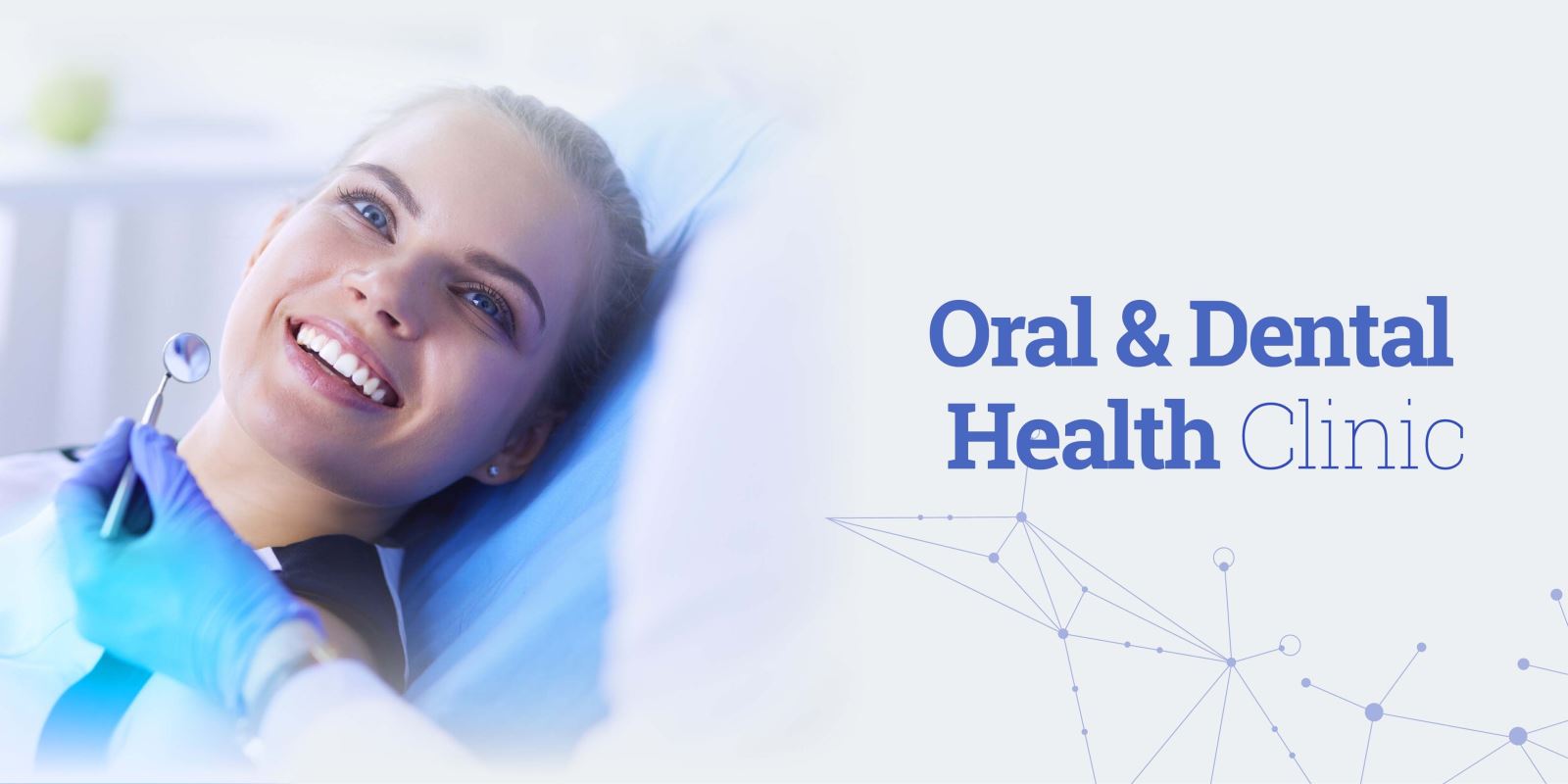Oral & Dental Health


Oral and dental health is of great importance in every period of human life.
Oral diseases require various branches to work together. In our hospital, various applications are carried out in specialties such as oral and maxillofacial surgery, periodontology, prosthesis and aesthetic dentistry.
Aesthetic Dentistry
Oral and dental health problems and aesthetic problems caused by teeth can seriously affect people's lives.
Aesthetic dentistry is a branch of dentistry that examines the structure of teeth, gums, face and jaw and the harmony between each other. As the awareness about oral and dental health increases, the interest in aesthetic dentistry applications also increases.
-
Full Porcelain Application
-
Porcelain Lamina
-
Zirconium Application
-
Dental Bleaching
-
Tooth Stone Cleaning
-
Aesthetic Fillers (Bonding)
-
Inlay and Onlay Dental Restorations
Periodontology (Treatment of Gum Diseases)
Periodontology is the department that examines the gums and supporting tissues surrounding the tooth. It includes the treatment of gum problems such as gum disease (gingivitis), advanced gum disease (periodontitis). Gingival bleeding is the main symptom of gum disease. For this reason, gingival bleeding should be cared for and the dentist should be consulted immediately.
Today, this branch of science is frequently consulted for aesthetic reasons. Especially when you laugh, the gingiva, which appears more than 3 mm, causes a bad appearance. (Gummy smile) In this case, gingivectomy and gingivoplasty procedures are frequently applied for the operation.
Endodontics (Canal Treatment)
The pulp (nerve-vascular package) tissue in the teeth is destroyed due to cracks and fractures in the teeth as a result of trauma, advanced dental caries, improper treatment processes or restorations. The process of removing the pulp tissue, cleaning and disinfecting the dental canal with canal filling materials is called canal treatment.
Orthodontics
What is it, Why is it applied?
It is a branch of dentistry to treat dental and bony anomalies and irregularities in the jaw or between the upper and lower jaw.
Beyond a beautiful and aesthetic smile, Orthodontics helps you maintain your oral health.
Orthodontic treatments such as braces are applied to correct perplexed teeth that are not lined up properly. When these problems are eliminated, your oral health is also protected. Since crooked teeth are difficult to clean, it can cause decay and gum diseases.
Your dentist decides whether you need orthodontic treatment using x-rays and other tools.
When should treatment begin?
The best ages for orthodontics are between 10 and 16 years old. This is the period when children's chin-face development is the most intense. Therefore, correction of teeth is faster and easier with orthodontic treatments during this period. Orthodontists can solve the problems in the jaw bones (For example: the lower jaw positioned too forward than it should be or the upper jaw being larger) by intervening at a young age and in a shorter time. For this reason, especially parents with jaw or tooth deformity can take their children to an orthodontist at the age of 7-8 and prevent their children from experiencing the same problems.
However, patients can wear braces at any age. Today, more and more adults wear braces every day.
What kind of care should I apply during orthodontic treatment?
There are very small openings in braces where food particles and bacterial plaque can piled up. This condition can cause staining, white spots, tooth decay and gum disease. For this reason, it is important to brush and floss after every meal.
The most common orthodontic treatment is braces:
Orthodontic treatment consists of bands, wires and braces. They gently place the teeth in their correct positions. In this way, the mutual relationship of your teeth is improved.
There are different types of braces. The dentist decides on the most suitable one depending on the diagnosis.
Pedodontics (Pediatric Dentistry)
Pedodontics, in other words,Children's Dentistry is the department where the foundations of oral and dental health are laid, covers the critical period between 0-16 years that will affect the whole life of the individual, and protects and monitors the oral and dental health of babies, children and young people. The main purpose is to protect the primary and permanent teeth of children in a healthy way and to eliminate the problems caused by caries, trauma, hereditary and similar factors in these teeth.
The most important question of parents about Pedodontics When should I have my baby's first dental examination? '. The World Health Organization (WHO) and the American Association of Pediatric Dentists recommend that the first dentist examination be performed after the first tooth eruption (usually between 6 months and 1 year old).
Main Procedures in the Field of Pedodontics
Preventive Procedures:
The number of primary teeth is 20 in total. Primary teeth are responsible for the development of speech as well as providing a healthy diet for the child. The biggest effect of primary teeth on oral and dental health that will continue throughout the life of the individual is that they guide permanent teeth. They protect the area they cover for their permanent teeth. Therefore, when there is any early extraction, this natural process is interrupted and the development of the permanent tooth is affected adversely.
The primary aim of the Department of Pedodontics is to take preventive measures against oral and dental health problems and to direct children to a future without caries. The procedures applied for this primary purpose are called Preventive Dentistry Applications.
Oral and Dental Health Education (Child + Parent)
Fissure Sealants (Dental Vaccine)
Fissure Sealant: It is a fluid filling material that closes the deep, indented and decay-prone grooves (fissures) on the chewing surfaces of molars, that does not allow bacteria to reach here, thus preventing decay. Fissure sealant application is the process of applying this fluid to the tooth surface by the Pedodontist in order to prevent the accumulation of nutrients in the cavities and grooves of the molar teeth, to make these surfaces easier to brush and to minimize the risk of caries. These applications should be checked every 6 months by the Pedodontist.
Fissure applications that will protect you from bruises that will cause a possible filling should be applied to all children.
Fluorine Applications
Fluorine: An element that prevents tooth decay and strengthens the structure of teeth.
The enamel of newly formed teeth is not fully mature yet. Therefore, these newly formed teeth are less resistant to decay and are more prone to decay formation. Fluorine protects the tooth against external factors by strengthening the immature tooth enamel and helps prevent possible dental caries. Fluorine gel, which can be applied to all surfaces of all teeth, has no side effects when applied correctly.
Fluorine application, which is a preventive treatment that can be easily applied to patients, should be applied by a Pedodontist every 6 months on average, although it varies according to the caries risk group of the child.
Tooth Decay Treatments
Tooth decay is a disease that starts with the destruction of the hard tissues of the teeth with acids produced as a result of the bacteria on the teeth fermenting nutrients.
Treatments are provided by cleaning caries, filling procedures, performing nerve treatments if the infection is advanced, and extracting the tooth if the caries is deteriorated too much.
Dental Traumas
One of the most common dental health problems in children is tooth fractures caused by trauma, tooth dislocation or displacement. Regardless of the type and size of the trauma, if there is no problem with general health condition such as loss of consciousness, bleeding, loss of balance, headache, vomiting, nausea, speech difficulties, you should definitely consult your Pedodontist as soon as possible in order to avoid possible damages of dental trauma. In such cases, the necessary treatment is carried out, taking into account the age of the patient, the degree of injury, the region, the tissues concerned and the general condition of the patient.
Space Maintainers
In early primary tooth losses, appliances called space maintainers are used to protect the place of the permanent tooth to come from the bottom. Space maintainers are appliances that prevent the neighbouring teeth to move into the extraction cavity and thus prevent the permanent tooth from being buried or coming out of a different place, thus preventing future orthodontic disorders.
Oral, Dental and Maxillofacial Surgery
What is an Implant?
They are the titanium screws placed in the jawbone like an artificial root, applied to replace the lost tooth tissue in tooth deficiencies due to caries or trauma.
Can it be applied to me?
It can be applied to any individual who does not have a significant systemic disorder and who has sufficient bone tissue as a result of radiological and clinical examinations. Implants can be applied to every person who has completed tooth and jaw development.
Will it be painful?
Implant is the best and most modern method in the treatment of tooth deficiencies. Today, thanks to advanced technology materials, implant applications can be performed much more easily, painlessly and quickly. With the new materials applied on the titanium material, implants now adhere to the jawbone more quickly, and thus prosthesis applications on the implant can be done in a short time.
Implant operations performed under local anesthesia are no different from extraction and other intraoral surgical procedures. No pain will be felt during the operation, and it is comfortable after the operation by following adequate care and doctor's recommendations.
Will I have problems after treatment?
With the latest developments in medicine, the success rate of implants has reached up to 95%. Implants, which have a smooth recovery period, remain in the mouth for years with regular care.
Is there any harm?
Implants do not cause any damage to the body and prevent bone resorption in the toothless areas by holding the existing bone.
I am smoking, will it be harmful? Studies have shown that smoking increases the risk of infection around the implant and thus not being able to integrate with the bone. Implants are not recommended for people who smoke heavily and who do not have sufficient oral hygiene.
For more information about implant treatment or to make an appointment, Contact
What is Oral, Dental and Maxillofacial Surgery? All surgical procedures related to teeth, treatment of pathologies in the face and jaw bones are examined within the scope of oral & dental & maxillofacial surgery.
Main operations in oral & dental & maxillofacial surgery:
-
Wisdom Teeth Surgery
-
Impacted Tooth Treatment
-
Cyst Operations In Jaw Bone
-
Oral Cancer Treatments
-
Oral Joint Problems
-
Tongue and Lip Sores
-
Treatment of Jaw Fractures
-
Sinus Lifting Operations
Thanks to the techniques developed in dental surgery, problems such as bleeding, swelling and pain after the procedure have been minimized. In particular, laser treatments prevent tissue indications and provide maximum comfort to the patient both during and after the procedure.



